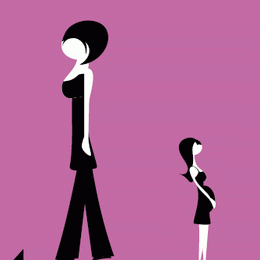Strengthening women’s voice for gender justice in development cooperation

For more than twenty years, One World Action has been influencing development cooperation to better support the agenda of women’s rights activists and organizations in the South to protect human rights, gender equality and bring sectoral and economic justice for all. Development practice is, however, hampered by the unequal value placed on the different roles performed by women and men in all areas (household, community and market), which determine access to key resources, including information and decision-making power.
Unpaid domestic and care work is primarily borne by women and hinders their ability to continue or take up paid work, restricting them to low-pay and/or part-time work. Furthermore, in the household, women might not even have the decision-making power over their earnings. One World Action’s vision of development consists in creating power and opportunities for people to transform their lives.
We work in partnership with women’s rights activists in the South to increase their power and ability to make choices. Issues critical to women in a given context act as a starting point. In Malawi, we supported the foundation of the only Coalition of Women living with HIV and AIDS (COWLHA). Women’s experiences of being HIV positive differ from men’s. More often, they get blamed for the infection and have no means to support themselves. COWLHA allows women to share similar experiences, but also to organize strategically. The Coalition lobbied for better access to treatments, started community gardens to improve the nutrition of their members and advocated representation in the planning and budgeting for HIV/AIDS work at the district level. Similarly, in Tanzania, we supported the implementation of ‘sister to sister’ clubs with the Children’s Dignity Forum. These spaces are set up to share experience around early marriage in view of prevention and encouraging young girls to stand up for their rights. Facilitating such platforms for women to organize, demand changes and hold decision-making power over these is critical to achieving more equal development outcomes.
Discrimination faced by women on the basis of their gender is multiplied by a myriad of other forms of oppression. Variables such as age, race/ethnicity, class, disability and sexual orientation amplify inequalities and render women more vulnerable. The stigmatization around HIV/AIDS or disability means that a woman with an already restricted access to paid work (as a result of work in the household or lack of education) will find it even more difficult to access employment, subjecting her to increased poverty. The needs of specific groups of women need to impregnate our practice, otherwise, development efforts will never reach the poorest and most marginalized. While our work specifically addresses women, we ensure that men are also engaged in reflecting and challenging the unequal distribution of power, resources and labor. We support MANET+, a network of people living with HIV/AIDS in Malawi, who train men to provide care for family members suffering from AIDS. Sharing the care responsibilities increases women's and girls’ ability to take up training or continue schooling. With the Zambia Women’s Lobby we work with political party members and local government officials to encourage them to involve women in politics. We seek to work with men in a way that is transformative and conducive of changes.
Working with grassroots organizations to give rise to substantial changes in the lives of women and girls in Southern countries requires persistence, long-term support and financing. While the realities of these women are at the core of intervention, it also serves to enrich advocacy at the macro-level of policy-making: trade, aid and development policies, etc. Women’s issues cannot be isolated from the socioeconomic and cultural rules which make and keep people, most specifically women, poor.
